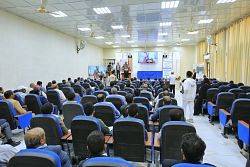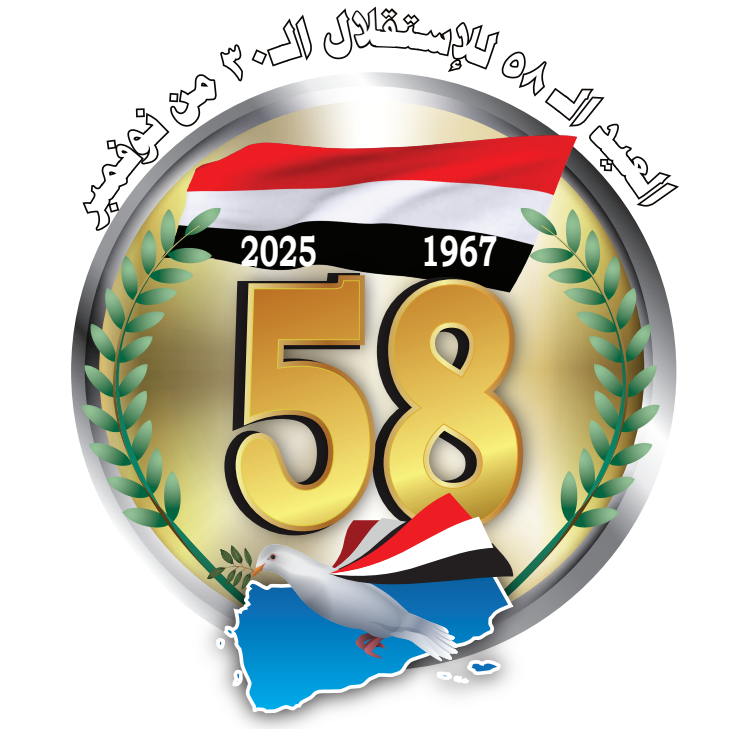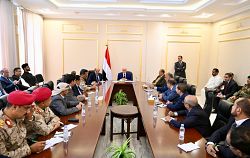
President al-Alimi Praises Role of Dhalea People in Deterring Imamate Agenda, Defending Republican System
His Excellency President Dr. Rashad Mohammed al-Alimi, the Chairman of the Presidential Leadership Council, met Saturday with a number of local authority leaders and military, security, political, and social figures from Dhalea Governorate, in the presence of the Prime Minister, Dr. Shaya Zindani.
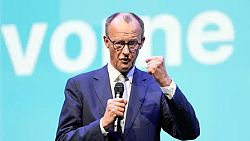
German Chancellor Says Europe Must Stand Strong
German Chancellor Friedrich Merz has called on Europeans to strive for greater autonomy, emphasizing the need for Europe to defend itself using its own capabilities, given the shift in transatlantic relations.
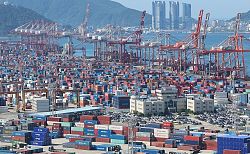
S. Korea's exports rise 33.9 percent in January
South Korea's exports jumped 33.9 percent year-on-year to reach $65.85 billion in January, driven by strong demand for semiconductors.
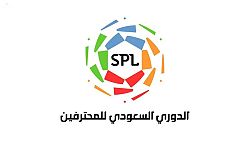
Saudi League: Al-Nassr, Al-Ettifaq and Neom Secure Victories Over Al-Ittihad, Damac and Al-Riyadh
Al-Nassr defeated its guest Al-Ittihad 2–0 in the match that brought them together at Al-Awwal Park Stadium in Riyadh, as part of the 21st round of the Saudi Professional League.
Last Update: ،
2026/02/08
Time
12:38:48
Latest News:
 Republican Decree on Government Formation, Naming its Members Issued
Republican Decree on Government Formation, Naming its Members Issued
 Saudi Prigram Launches Education Stability Enhancement Initiative in Socotra
Saudi Prigram Launches Education Stability Enhancement Initiative in Socotra
 Al-Eryani Calls on United Nations to Protect Staff After Contract Terminations in Sana'a
Al-Eryani Calls on United Nations to Protect Staff After Contract Terminations in Sana'a
 Child injured by Houthi sniper's bullets southeast of Taiz
Child injured by Houthi sniper's bullets southeast of Taiz
 Speaker of Shura Council, French Ambassador discuss peace efforts in Yemen
Speaker of Shura Council, French Ambassador discuss peace efforts in Yemen
Latest News:
 Republican Decree on Government Formation, Naming its Members Issued
Republican Decree on Government Formation, Naming its Members Issued
 Saudi Prigram Launches Education Stability Enhancement Initiative in Socotra
Saudi Prigram Launches Education Stability Enhancement Initiative in Socotra
 Al-Eryani Calls on United Nations to Protect Staff After Contract Terminations in Sana'a
Al-Eryani Calls on United Nations to Protect Staff After Contract Terminations in Sana'a
 Child injured by Houthi sniper's bullets southeast of Taiz
Child injured by Houthi sniper's bullets southeast of Taiz
 Speaker of Shura Council, French Ambassador discuss peace efforts in Yemen
Speaker of Shura Council, French Ambassador discuss peace efforts in Yemen
National Education Conference (Reality and Challenges) kicks off in Marib
[05/05/2025 05:58]
MARIB - SABA
The National Education Conference (Reality and Challenges) has commenced in Marib on Monday.
Organized by the National Center for Strategic Studies and the Yemen International Development Agency in coordination with the Ministry of Education and the University of Saba Region, the conference has attracted wide national and regional participation from researchers, academics, and specialists.
The two-day conference aims to discuss the current state of general and higher education, the challenges it faces amid wars and crises, and to present studies and scientific papers that align with modern trends in education. It will also explore the reality of education funding, future aspirations, and enhance the role of stakeholders in shaping the future of education, ensuring broad community participation.
In his opening remarks, Deputy Minister of Education Dr. Ali al-Ubab emphasized the importance of this conference as a scientific dialogue platform to diagnose the educational reality and how to uplift and empower it to endure and thrive again, through realistic and actionable proposals and plans that impact the educational process.
Dr. al-Ubab noted that Yemen's educational system faces significant and escalating challenges since the Houthi militias took control of state institutions and waged a destructive war against the Yemeni people, systematically destroying the education sector to entrench ignorance among the populace and facilitate their control, altering identities, values, and beliefs, and turning generations into instruments of destruction for their sectarian and Iranian agenda.
He stated, "the will for change and reform exists, and our determination to face challenges is strong. We are here to exchange views to improve the quality of education." He highlighted that the ministry is collaborating with various partners to implement plans and programs supporting the educational sector, which has helped sustain the education sector in liberated areas over the past years despite significant challenges and increasing needs.
For his part, Marib Governorate Administrative Undersecretary Abdullah al-Bakeri underscored the need for a comprehensive and clear strategy to elevate and revitalize education, aiming to improve its current reality.
He expressed hope that the conference would result in decisions and recommendations that would assist decision-makers and all stakeholders in consolidating efforts to address educational challenges, including infrastructure shortages, lack of school facilities, teaching materials, and operational budgets, in addition to reforming the teachers' wage system to empower them to fulfill their educational duties without resorting to other job sectors.
Al-Bakeri pointed out that the education sector is a primary focus for leadership, as education is the cornerstone of rebuilding the nation and recovering from war, propelling toward the future as it shapes the minds of generations that will develop all fields of life and achieve societal welfare.
Meanwhile, the President of the Conference Dr. Abdulhamid Amer noted that the conference today follows nine months of preparatory work by a committee composed of academics and specialists in coordination with the Ministry of Education, the Ministry of Higher Education, the University of Saba Region, and the local authority in Marib Governorate.
He highlighted that over the two days, the conference will discuss 20 research papers presented by academics and specialists from inside and outside Yemen, covering five main themes: general and higher education, curriculum development, the role of the public and private sectors in educational advancement, risks facing the education process, and electronic teaching methods and strategies.
On the first day, the conference holds three working sessions featuring 15 research papers presented by academics and researchers either directly or via video conference.
These sessions will discuss the state of education and the government's role in its development amid war, curriculum development, the situation of Yemeni students abroad, standards and principles of education in emergencies, and experiences from Gulf Cooperation Council countries and UNICEF in supporting education. Additionally, it will address challenges in education during war, the impact of war on student dropout rates, challenges facing curricula, and the psychological effects on general education students due to the war.
The papers will also discuss private education in Yemen, the role of assessment in reforming the educational process, the use of modern technologies in education, educational alternatives (electronic) in the absence of teachers, and the impact of developing teachers' skills on improving their performance.
Key words:
recommendations - infrastructure - systematically - Administrative - Undersecretary - participation - collaborating - consolidating - International - Meanwhile - President al-Alimi Praises Role of Dhalea People in Deterring Imamate Agenda, Defending Republican System
President al-Alimi Praises Role of Dhalea People in Deterring Imamate Agenda, Defending Republican System Republican Decree on Government Formation, Naming its Members Issued
Republican Decree on Government Formation, Naming its Members Issued Saudi Prigram Launches Education Stability Enhancement Initiative in Socotra
Saudi Prigram Launches Education Stability Enhancement Initiative in Socotra Al-Eryani Calls on United Nations to Protect Staff After Contract Terminations in Sana'a
Al-Eryani Calls on United Nations to Protect Staff After Contract Terminations in Sana'a Child injured by Houthi sniper's bullets southeast of Taiz
Child injured by Houthi sniper's bullets southeast of Taiz  Speaker of Shura Council, French Ambassador discuss peace efforts in Yemen
Speaker of Shura Council, French Ambassador discuss peace efforts in Yemen Ambassador Faqira discusses with Jordanian official strengthening parliamentary cooperation
Ambassador Faqira discusses with Jordanian official strengthening parliamentary cooperation Aden Governor praises EU support for development projects
Aden Governor praises EU support for development projects  Yemeni Ambassador Discusses Developments in Yemen with Austrian Official
Yemeni Ambassador Discusses Developments in Yemen with Austrian Official Yemen Participates in 57th Session of Arab Human Rights Committee
Yemen Participates in 57th Session of Arab Human Rights Committee